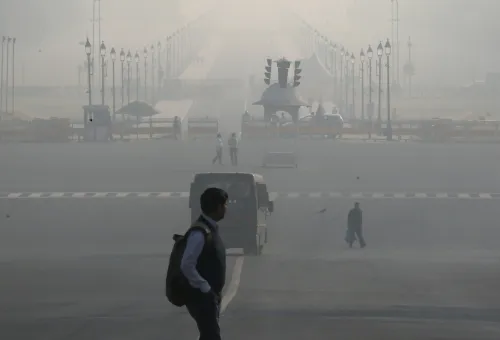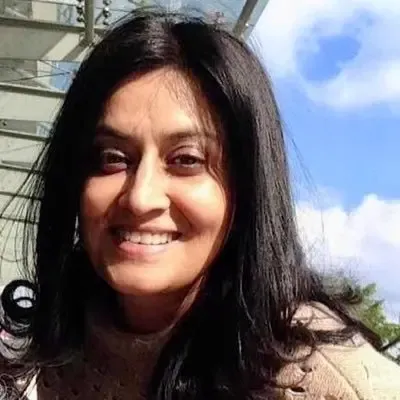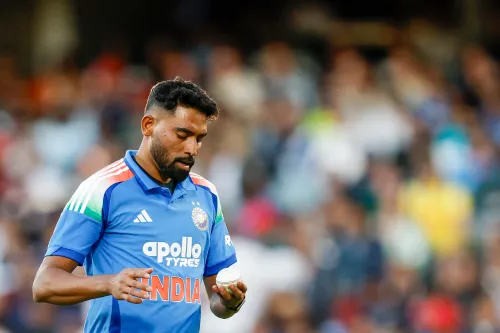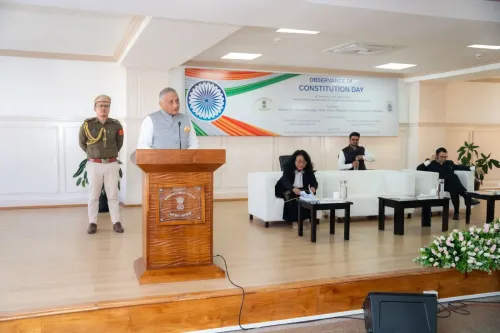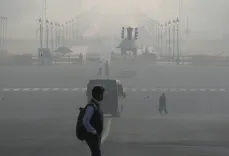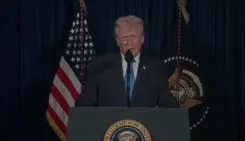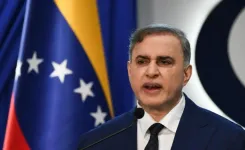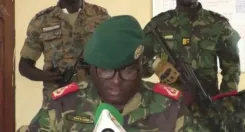Did Kunal Ghosh's Social Media Post Spark the 'Old vs New' Debate in Trinamool Congress?
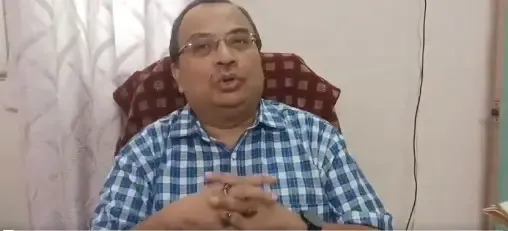
Synopsis
Key Takeaways
- Kunal Ghosh's post has ignited a debate over leadership styles in TMC.
- The conflict highlights a divide between young and old leaders.
- Abhishek Banerjee is seen as a rising force within the party.
- Criticism of the party's administrative failures is growing.
- The upcoming elections could be significantly impacted by these internal tensions.
New Delhi, Oct 4 (NationPress) Amid ongoing speculation regarding Trinamool Congress (TMC) leader Kunal Ghosh's enigmatic social media post criticizing veteran party leaders for their silence in defending the party, its leader Mamata Banerjee, and the West Bengal government, a renewed debate has emerged over the clash between 'old' and 'new' leadership within the party.
Ghosh is known for his outspoken nature, often disregarding political correctness.
He has publicly criticized seasoned Trinamool leaders such as Sudip Bandyopadhyay, Sougata Ray, and Kalyan Banerjee, among others, ahead of the upcoming Assembly elections.
His participation in an event organized by a rival of Bandyopadhyay reportedly cost him his position within the party.
Abhishek Banerjee, nephew of Mamata Banerjee and her presumed successor, is recognized for promoting young Trinamool leaders.
This has led to speculation that Ghosh may be acting as a proxy for Abhishek Banerjee.
Nonetheless, Ghosh made a comeback.
Mamata Banerjee has consistently supported her chosen candidates, all of whom successfully returned to the Lok Sabha.
However, tensions remain, contributing to the ongoing 'old vs young' conflict within the Trinamool Congress.
Critics attribute this rift to differing views between Mamata Banerjee and the three-time MP from Diamond Harbour, Abhishek Banerjee.
There have been calls, including billboards, promoting Abhishek Banerjee's leadership.
Unverified reports suggest the existence of opposing 'camps' aligned with Mamata Banerjee and Abhishek Banerjee.
Some supporters have privately claimed that Mamata Banerjee's political approach is 'outdated' and that the party must 'modernize'.
Conversely, Mamata Banerjee's loyalists argue that these 'modernization' efforts are evolving into a 'corporatization' of the party.
A number of senior leaders reportedly opposed engaging with I-PAC, previously led by Prashant Kishor, before his direct political involvement.
However, it appears that the 'new' faction influenced her decisions during confrontations with the Bharatiya Janata Party (BJP), which is becoming a significant political force in the state.
Some Trinamool leaders have sought to reshape the controversy with the slogan 'Mamata Banerjee our leader, Abhishek our general'.
Yet, critics quickly pointed out that the term 'general' implies a growing influence of Abhishek Banerjee, the National General Secretary of Trinamool Congress, who is viewed as steering the organization while Mamata Banerjee focuses on governance.
Interestingly, the Chief Minister previously acknowledged her limited availability for party organization.
During a period when the state government faced backlash for various administrative failures, including the tragic rape and murder of an intern at Kolkata's R.G. Kar Hospital, senior leaders were notably absent in their defense.
While some Trinamool leaders voiced their discontent with the administration and participated in symbolic protests, Ghosh accused senior leaders of remaining silent and neglecting their duty to defend the party and the state.
A senior member of the organizational team privately criticized the state government for its administrative shortcomings, suggesting it should resolve issues without the party's involvement.
If this marks the beginning of yet another controversy, it bodes poorly for the ruling Trinamool Congress with the West Bengal Assembly elections looming just months away.

